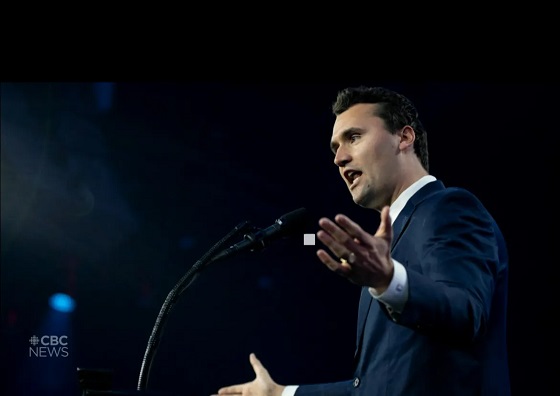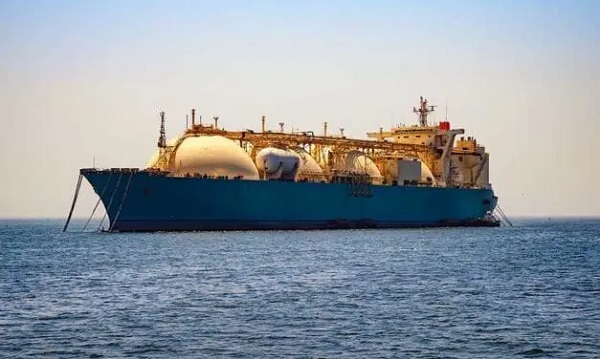Economy
A CNN report that hasn’t been published yet. Interview with Alex Epstein of Energy Talking Points

A CNN reporter interviews me about my political work
A behind-the-scenes look at my work with candidates and elected officials
In mid-February, a CNN reporter who had been following Ron DeSantis’s primary campaign, and had heard the campaign refer positively to my work, reached out to me to learn more about the behind-the-scenes work I do with candidates and elected officials.
I thought readers of this newsletter would enjoy learning more about this work—which, as you will see, is non-partisan, non-exclusive, and principled: my team and I will advise any major politician or candidate who asks, and will only deliver messaging and policy ideas we believe are pro-freedom and pro-human.
(I am keeping the identity of the reporter anonymous, and I am further protecting the person by paraphrasing their questions in my own words so that no specific phrases are attributable to them. Note also that CNN has not yet published my comments.)
CNN Reporter
What kinds of opportunities do you think exist for a Republican president in terms of energy and environmental policy?
Alex Epstein
I do a lot of advising of people in politics, and it actually has no partisan affiliation. So I’ll advise anyone from any party and I never support any candidate. I’ve advised multiple of the presidential candidates and I would advise Biden if he asked me (he hasn’t asked me for any advice yet).
My interest is in pushing what I call energy freedom policies—which we could get into the details of—which I think would be very good for the country.
CNN Reporter
What are energy freedom policies, and how do you go about advising policymakers to put them into practice?
Alex Epstein
The basic idea of energy freedom is that the key to both energy abundance and everything that comes with it, including prosperity here and around the world—but also coming up with long term alternatives to fossil fuels—is ultimately to be free to produce and use every form of energy.
I believe there’s a near term imperative to have as much energy as possible. I don’t think we should be restricting fossil fuel use. But I also think there’s a lot of things we can do to get out of the way of alternative forms of energy. So I’m personally agnostic in terms of what form of energy wins; I just want the most cost-effective thing to win.
For example, in the realm of alternatives, what we really need are alternatives that can be globally cost-competitive, such that China, India, etc., will voluntarily adopt them, versus the current state of affairs where China has 300-plus new coal plants in the pipeline designed to last 40-plus years because that’s the cheapest thing.
So that’s the broad idea. I can send you some links on this, but I’ve broken it down into five key policy areas. And then there are a lot of detailed policies within that. But the broad frame—and again, I can send you documents—but “Liberate responsible domestic development” is one of them. And so, that basically means: allow America to build things quickly. Right now, China can build a subway station in nine hours. We can’t build a yoga studio in nine months. So basically, getting all of the anti-development stuff out of the way. And again, this is energy agnostic. It’s not just for fossil fuels, but a lot of the changes apply to fossil fuels.
Number two is: “End preferences for unreliable electricity.” I think there are a lot of bad policies that favor unreliable electricity, so solar and wind without really accompanying battery storage or other backup. And so I advocate a suite of policies that I think would allow all forms of energy to compete to provide reliable electricity.
The third one is: “Reforming environmental quality standards to incorporate cost-benefit analysis.” Most people don’t know this, but right now, EPA is literally not allowed to consider the cost of its policies. And I think that just violates basic rules, and it guarantees that we do things that are bad for our economy and for health, because wealth is health. And if you can’t consider the cost of your policies, and you can only consider the benefits, then you’re always going to tend toward more anti-industry stuff. So there’s a suite of reforms there.
Number four is: “Address CO2 emissions long term by liberating innovation not punishing America.” So I sort of indicated this before, but I don’t believe in short term restrictions on fossil fuels. I think basically anything we do to restrict ourselves just harms America, and doesn’t do anything to make low carbon alternatives cost-competitive. So I think all the action should be in things like liberating nuclear, liberating deep geothermal, and a lot of this is in the “Liberating responsible domestic development.” If you make that a lot easier, you make it easier to do these other things, these alternatives.
And then the fifth one is kind of a specification on the fourth, but it’s “Decriminalize nuclear,” because I think nuclear energy is the most persecuted form of energy. It has a really tragic history where it used to be cost-effective and now it’s not, because of irrational regulations that have made it 10 times more expensive and yet have added zero safety benefit. They’ve in fact harmed our safety in many ways by depriving us of clean, safe nuclear energy. And so I think there’s a whole suite of reforms necessary for that.
So those are the broad areas and then in each area, you know, my team and I are hard at work detailing, “Hey, what are the key reforms?” And one thing just to note is that I don’t hold any political office, I never will, I don’t lobby for anyone, I don’t endorse anyone, I set up everything so I’m quite independent.
So what I try to do is just say what I think is right, and then persuade people as much as possible. And fortunately a lot of people listen to me, but I have no power over anything officially—but that also allows me to just say what I think is right. So, I’m not under the illusion that everyone is going to do exactly what I think, but they do listen.
And then to your question about what’s happened: I’ve only been working with politicians since really 2020, and we’ve done it through a vehicle called Energy Talking Points—which, everyone can see the messaging at EnergyTalkingPoints.com—and we have only recently in the last 6 to 12 months started getting into policy advice.
We have some policy stuff in the works with a few different offices, and certainly we’ve advised multiple Presidential candidates on policy ideas, but I don’t think we’ve yet seen these energy freedom policies pursued, really put forward, to the extent we’ll see it in the next year or two. Whereas we have seen, I think, quite a bit of my messaging being used.
CNN Reporter
Why has the nuclear energy space become so toxic in recent years?
Alex Epstein
If you look at where nuclear was at its peak, it’s arguably in the late 60’s when you’re really getting cost-competitive with coal. But, you know, safer and cleaner than coal—and I’m a big advocate of coal. I mean, I’m a big advocate of anything that can produce additional cost-effective energy. But I think nuclear was in the realm of out-competing coal back then.
And it has a lot of inherent advantages. It’s very dense. The fuel supply is abundant, the fuel is cheap, safer to mine obviously, doesn’t emit anything harmful in the air. But it was demonized as a unique safety threat, whereas I think in reality—and I talked about this in my book Fossil Future and on EnergyTalkingPoints.com—I think it’s actually uniquely safe.
And we’re doing a lot of work on this in terms of our nuclear policies that we’re working on. But I think the green movement, which is very tied to the anti-fossil-fuel movement, really demonized it to the point where people equated nuclear power with nuclear bombs, thought of it as uniquely dangerous and then set up a whole regulatory infrastructure including the Nuclear Regulatory Commission, where the whole focus was on making nuclear infinitely safe beyond any fearmonger’s imagination, versus making it available.
And so they thought, in practice, the best way to make it safe was to make it non-existent. And that’s why since the NRC came into existence in 1975, we didn’t have one new nuclear plant go from conception to completion until last year. And those plants were many times over budget in Georgia.
So I think it’s a 50 year plus problem and when I talk to any politician, what I just tell them is, “You have to be willing to consider fundamental reforms of the NRC and perhaps replacing it with something else, because the status quo is so bad.” Often politicians just like saying that they like things, or kind of tinkering at the margins, saying, “Hey, we’ll give it some funding,” or you know, “We’ll invest in this research,” and I think you have to fundamentally stop treating nuclear as a uniquely dangerous form of energy.
There’s a whole bunch of things that need to be done, but I’m glad people are talking about it more positively. But the policy, we’re in a policy catastrophe with it. I don’t believe any significant progress will be made until we radically change the policy.
CNN Reporter
Have you spoken to DeSantis personally?
Alex Epstein
So, without going into much detail, since most of this stuff is confidential, I have spoken to him before, and I’ve spoken to his team before. And I would say that what you see publicly is reflected privately in the sense of: he and they are very detail-oriented, particularly in terms of implementation.
They’re very interested in: How do you actually get these things to work? And I think that’s something that is very good and it’s something that I try to become better at myself. I mean, there are plenty of things that I disagree with Ron DeSantis about, but I respect that detail-orientation, and I think it explains the ability to get things done in practice.
CNN Reporter
What candidates did you advise this cycle?
Alex Epstein
I won’t say specifically, but a lot of them I either talk to—I always tried to talk to the individual or the team, and that happened in many of the cases. I mean in general we, this project I call Energy Talking Points, we advise something like at this point over 200 major offices. Last year I probably advised 75-plus major politicians. So, I talk to a lot of people to various degrees, and again, I don’t do anything for them except offer them messaging and policy—but I think we do quite a good job with that and I think that’s why they listen. Or, sometimes they listen; definitely not always.
CNN Reporter
What have you learned since you’ve entered the space of politicians who shape policy?
Alex Epstein
From my perspective, as somebody who considers himself more pro-freedom than both major political parties, I’ve been surprised at how open people are to more radical ideas if those ideas are explained in detail and have accompanying persuasive arguments.
One thing I try to do when I advise people is give them solutions, not just vague advice. So if I’m giving policy, give very specific guidance, give guidance on how to talk about it. And this is also true about messaging.
For example, one thing you saw—this is not me revealing anything because it was public—both Ron DeSantis and Vivek Ramaswamy, I can send you an article I wrote about this, but they talked about, you know, the 98% decline in climate-related disaster deaths. So this was at least mentioned by DeSantis in his energy speech in Midland, and Vivek mentioned it many, many times, sometimes mentioning my name and my book, Fossil Future.
And I think this is a really important point for people to understand: that empirically, we’re safer than ever from climate disasters. And I think people should think about why that is and what the implications are for the future.
I was impressed that leading politicians are willing to talk about that. And my experience with people like that is they’ll ask for references. At least some of them. And I was happy to see that the media felt the need to respond.
So we saw—I’ll send you this article—but we saw Reuters responded to it, the New York Times responded to it, PolitiFact responded to it. And none of them could answer the basic fact—they tried to sort of explain their way around it—but none of them refuted the basic fact. And I just thought, okay, I like that people are willing to say and do more pro-freedom and more principled things if somebody really helps them with the details. That was my hope when I started getting into politics and I am seeing that bear out to a significant extent.
CNN Reporter
Have you changed your approach over the years as you’ve watched the public react to your talking points?
Alex Epstein
I’ve been working on these issues for 17 years, so a lot of this stuff, I test it out in different kinds of ways—which is not the same, I mean, I’m not running millions of dollars worth of polls and stuff. But I test it out in front of different audiences. I see how people respond on social media.
I think people are open to a lot, so my own interest is what’s right and do the best job you can of persuading people of it. And there’ll be plenty of people who try to compromise that and dampen it. I don’t need to be the one to do it. I just try to make sure for everything I say, I can make, I think, a case that would persuade a reasonable person who was inclined to disagree with me but wasn’t dead-set on disagreeing with me.
If I have trouble doing that and I think the thing is right, then I try to get better at arguing for it. I don’t just give up. And just as a personal policy, I don’t ever advocate anything I don’t agree with, and I will never help a politician with something I don’t agree with. So for example, as I said, I’m not partisan, but if Republicans want to pass an import carbon tax, I will definitely not help them with that and I’ll publicly argue against them.
CNN Reporter
I noticed Elon Musk receiving some pushback from surprised conservatives, when he posted that the best way to address climate change is with a carbon tax.
Alex Epstein
Well, that’s been his position for a long time. I don’t think it really makes any sense. But what’s interesting I think about him—and I don’t actually attribute this to him taking over Twitter—he has dramatically moderated his hostility toward fossil fuels and his belief in climate catastrophe.
So he has some hostility now, and to some extent, his very rosy claims about solar and batteries, although those have been moderated the least; maybe there are commercial reasons for that. But he’s kind of, you know, if you look at when the Powerwall came out, he’s just like—and this is almost a direct quote—“burning fossil fuels and putting stuff into the atmosphere is the worst idea ever” and “the planet is on fire.” That’s what it looks like.
And it’s just kind of—and then we have this Powerwall and a million things he said about the Powerwall that didn’t come remotely true and would obviously not come remotely true if one knew anything at the time. But now his position [on climate] is sort of, “Yeah, you know, it’s not going to be a problem for a while, but it may be a problem eventually.” And he loves to say, “If I could push a button and get rid of oil and gas, I wouldn’t push the button, and in fact, we need more oil and gas in the US, short-term.”
So he’s become more moderated.
But yeah, carbon tax, that’s a standard thing that a lot of people believe in, so anyone who’s surprised with that just hasn’t followed him at all. And he’s not actually—whatever one thinks of the change in his views—he’s not like a standard conservative. He never was a standard liberal or a standard conservative, I don’t think.
CNN Reporter
Thank you for your time.
Business
Carney’s ‘major projects’ list no cause for celebration

From the Fraser Institute
By Alex Whalen
Early in his term, Prime Minister Mark Carney placed great emphasis on the need to think big and move quickly, to make Canada the “world’s leading energy superpower.” Recently, the government announced the first group of projects to be championed by its new Major Projects Office (MPO), which was also recently created to circumvent existing rules and regulations to speed up approvals. Unfortunately, the list of projects is decidedly underwhelming, which highlights the need for a true course correction when it comes to fixing Canada’s investment crisis.
According to the government, the purpose of the Major Projects Office is to fast-track “nation building” projects, with a focus on regulatory approvals and financing. Yet, of the first five projects referred to the MPO, regulatory approvals have largely already been secured and the projects were likely to proceed without any intervention or assistance from Ottawa.
For example, many of the regulatory approvals required for the Darlington Small Nuclear Reactor are already in place, and construction has already begun. The McIlvenna Bay copper mine in Saskatchewan is already half-built.
Other projects, such as LNG Phase 2 and the Red Chris Copper Mine, both in British Columbia, are expansions of existing facilities and are backed by industry-leading firms such as Shell and Rio Tinto, respectively. In general, these projects do not need government assistance or financing since they’re already largely approved.
A further six projects being referred to the MPO are at an earlier stage of development, and for the most part do not yet require regulatory approvals. Carney has referred this list—which includes projects ranging from carbon capture to high speed rail to offshore wind—to the MPO to be matched with government “business development teams” to “advance these concepts.”
These initiatives parallel the approach by the Trudeau government to rely on government-directed projects to foster economic growth, which failed miserably. The Trudeau government’s economic policies featured a much larger role for government in the economy, including a general increase in the size and scope of the federal government, as measured by increased spending and regulation. The result? Under Trudeau, annual growth of per-person GDP (an indicator of living standards) was just 0.3 per cent, the worst track record of any recent prime minister. Net business investment (foreign direct investment in Canada minus Canadian direct investment abroad) declined by $388 billion between 2015 and 2023 (the latest year of available data).
To set Canada on a course to reverse the investment crisis, Carney must abandon the notion of government-directed economic growth. Approving projects already largely approved, while sending other less-certain projects to government business development bureaucrats, will not fix Canada’s problem. Simply put, the government should craft policy to create the right conditions for investment and entrepreneurship for all firms in all sectors of the economy, not simply its chosen winners.
To attract the kinds of major projects that will meaningfully improve Canada’s investment crisis, the Carney government should eliminate a host of regulations and reform those that survive. As other analysts have noted, the list of regulatory hurdles in Canada is long. Canada’s total regulatory load has increased substantially over time and across a wide range of industries including energy, autos, child care, supermarkets and more.
Nowhere is this more evident than the energy industry, which is one of the largest drivers of investment in Canada. Federal Bills C-69 and C-48 (which govern the project approval process and ban oil tankers on the west cost, respectively), alongside the federal greenhouse gas emissions cap, net-zero policies, and a host of other regulation such as new fuel standard have significantly constrained this industry, which is vital to Canada’s economic success.
Canada’s regulatory explosion has effectively decimated the country’s investment climate. While Bill C-5 allows cabinet to circumvent these regulations, it places the cabinet, and more specifically the prime minister, in the position of picking winners and losers. Broad-based tax and regulatory reduction and reform would be a much more effective approach.
Canada continues to struggle amid an investment crisis that’s holding back economic growth and living standards. Our country needs bold changes to the policy environment conducive to attracting more investment. The government’s response to date, through Bill C-5 and the MPO, involves making the government more, not less, involved in the economy. The government should reverse course.
Business
Global elites insisting on digital currency to phase out cash

From LifeSiteNews
By David James
The aim is to have the digital euro fully in place by 2030 in order to move Europe fully into the United Nations’ post-capitalist system described in Agenda 2030.
It always pays to scrutinize closely the comments of financial elites because they are rarely honest about their intentions. An instance is the comments of Christine Lagarde, president of the European Central Bank (ECB) who said there will be a vote next month in the European Union parliament on the next step toward creating a digital euro, which would be a central bank digital currency (CBDC).
A central bank digital currency is money issued by the central bank in digital form as opposed to digital credit issued by banks, which is the dominant form of money in Western societies. She claims that it will mean more freedom for Europeans and that there is nothing to fear.
Lagarde anticipates launching the digital euro in about 18 months. The aim is to have it fully in place by 2030 in order to move Europe fully into the United Nations’ post-capitalist system that is described in Agenda 2030.
Lagarde’s blandishments about what the digital euro represents do not survive close examination. She acknowledged that the main concern of the population is the privacy implications, claiming the ECB is looking at a technology that will offer protections. The private banks, she said, will apply the “rules of scrutiny” that already have access to the transactions. “We are not interested in the data. The private banks are interested in the data.”
Lagarde also said that the “people have dictated” the transition to a digital euro. This looks dubious. Neither the EU Commission nor the ECB is democratically elected. And if the main concern people have with a CBDC is privacy, then why would people prefer it over cash, which is immune to scrutiny? It is not as if a digital euro would satisfy an unmet need. Digital money – credit and online transactions – is already freely available in the banking system.
The ECB is also speaking out of both sides of its mouth, saying on one hand that the digital euro will only complement cash and on the other that cash will be eliminated.
Lagarde made it clear that the aim is to phase out cash completely. Agenda 2030, she claims, “can only be enforced in a cashless economy.” Why? What is it about cash that makes environmental policies impossible to implement? The answer is surely that a digital euro is needed to control people’s behavior, forcing them to comply with environmental rules.
Previous comments by central bankers suggest there is good reason for Europeans to be extremely suspicious. In 2021, the general manager of the Bank for International Settlements, Agustín Carstens, said: “We don’t know who’s using a $100 bill today and we don’t know who’s using a 1,000-peso bill today. The key difference with the CBDC is the central bank will have absolute control on the rules and regulations that will determine the use of that expression of central bank liability, and also we will have the technology to enforce that.”
The pretext for the financial power play is climate change and the push toward net zero. A European CBDC is not, as implied by Lagarde, the creation of a new digital monetary mechanism. As economist Richard Werner points out, that already exists – credit and debit cards, for example. The significance of a digital euro is that it threatens the banking system.
A CBDC, like cash, has no interest rate on it. So why would people continue to use credit produced by private entities such as banks or credit card companies – currently over 95 percent of the money supply – on which they have to pay interest? As the Reserve Bank of New Zealand noted, CBDCs have the potential to destroy private banks.
That problem does not seem to concern the ECB, however. Indeed, fundamentally altering the banking system may be what they are aiming for. Lagarde said “climate compliance” will become a core element of bank supervision, not a separate initiative, “because climate change presents significant, material financial risks to banks and the entire financial system.”
The ECB’s supervision will mandate that banks integrate the management of climate-related and environmental risks into their existing risk management processes, particularly through new prudential transition planning requirements under what is called CRD VI. European banking, it seems, will no longer be defined by profitability and fiscal soundness but also by the politics of climate change.
The slipperiness of the ECB‘s arguments point to a much darker ambition. Werner says when CBDCs are connected to digital IDs “we are talking about the most totalitarian control system in human history … it gives you as a controller complete visibility on what everyone is doing, every transaction.
“The monitoring is only one aspect. These CBDCs are programmable and you can use big data algorithms, which they sell to us as artificial intelligence, in order to have rules about who can buy what and for what purpose, at what time and at what place – and therefore control all your movement. In the history of dictatorships, there never has been such a powerful control tool.”
There is a flaw, though, in the ECB’s push to change Europe’s financial architecture that may prove fatal to its ambitions. The EU and ECB do not have genuine central control. When the euro was established in 1998, the only way Germany was able to join was on the condition there was no consolidation of the government debt. So, although the ECB notionally sets interest rates for the zone, government debt is held at the national level and each country’s interest rate differs.
The ECB is thus a central bank in name only, unlike the U.S. Federal Reserve, or for that matter most country’s central banks, that oversee their national government debt. A European nation can choose to exit the EU, and each has to have its own monetary policy in spite of the ECB setting a uniform rate.
The push to create a digital euro is most likely an attempt to deal with these contradictions, but at best it will be a makeshift solution and it will take very little for it to fall apart. Disintegration of the European Union, and the common currency, is not out of the question.
Meanwhile, the U.S. is going in the opposite direction. In July, the U.S. House of Representatives passed the Anti-CBDC Surveillance State Act, which prevents the Federal Reserve from issuing a retail CBDC directly to individuals.
European debt is becoming increasingly parlous, especially in France where there have even been suggestions that there might need to be assistance from the International Monetary Fund. Italy’s debt, which is 138 percent of GDP, is also problematic. Lagarde is hoping for a rollout of the digital euro in 2027 and completion in 2030. But the Euro zone, and the ECB that oversees it, may not last that long.
-

 Alberta2 days ago
Alberta2 days agoAlberta first to add citizenship to licenses
-

 Business2 days ago
Business2 days agoCarney government’s housing GST rebate doesn’t go far enough
-

 Business2 days ago
Business2 days agoCarney’s Ethics Test: Opposition MP’s To Challenge Prime Minister’s Financial Ties to China
-

 Alberta2 days ago
Alberta2 days agoBreak the Fences, Keep the Frontier
-

 Business2 days ago
Business2 days agoAttrition doesn’t go far enough, taxpayers need real cuts
-

 Media2 days ago
Media2 days agoCancel culture wins ultimate victory as murder of Charlie Kirk ghoulishly celebrated by radical Left, media included
-

 Alberta2 days ago
Alberta2 days agoAlberta Education negotiations update: Minister Horner
-

 Opinion2 days ago
Opinion2 days agoRFK Jr. Reveals Unforgettable Details About Charlie Kirk in Emotional Tribute





